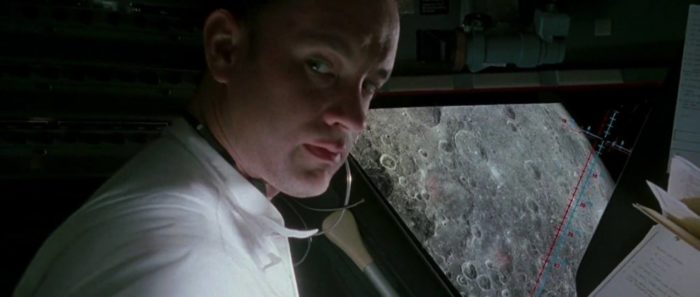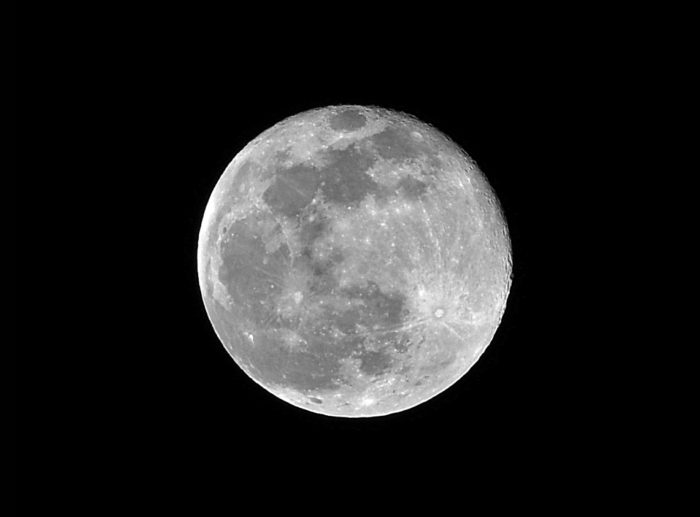The Perils of Exploring Space from a Groaning Planet
We’re all rightly exploring the fiftieth anniversary of the Apollo 11 moon mission, during which man first set foot on lunar soil.
Because I’m busy wrapping up packing for the Realm Makers 2019 conference, I thought I had little time for exploring this topic.
Fortunately, past-me has this covered, from this 2015 article at Christ and Pop Culture.
Here I started with a retrospective on the Ron Howard film Apollo 13. This movie explores not just the ill-fated moon mission, but the nation’s already-waning boredom with the space program altogether. Then I considered movie–Jim Lovell’s (Tom Hanks) line:
“I look up at the moon and wonder, when will we be going back, and who will that be?”

From “Apollo 13: When Will We Be Going Back?” (July 3, 2015):
If we’re refusing to go back, why is that?
Reason 1: We are fallen. Lovell was part of the crew who read, on Christmas Eve during the Apollo 8 mission, Genesis 1’s account of God’s creation. But we are broken reflections of what God created. We are fallen. That means we want to exalt ourselves above God. Instead of wanting to bear and reflect the fire of His glory, we crave to steal the fire from His heaven.
That also means we reject or abuse God’s order to fill the earth with His glory by creating culture (Gen. 1:26-28). Do we suspect that if Adam and Eve had never rebelled against God, they and their children would have stayed in the Garden forever, naked and bored? Perish the thought. Instead for years and decades and centuries they would have made culture: clothes, travel, agriculture, architecture, stories, songs, games, science, technology. They would have built engines and ships. Later, they would have spread God’s glory to the stars.
Reason 2: Now violent creation is punishing our cultures. If humans had not sinned, the heaven of space would not be our enemy. This heaven could have been as the medievalists imagined it: a spiritual realm of æther in which musical spheres floated between earth and God’s dwelling place. Now space is a cold vacuum. Its music has been turned to groaning.
In real-world space, one bad O-ring, one damaged coil, and purging flames blast us back into dust.
And in our stories, outer space is not populated by singing heavenlies. It becomes a killing field of humans versus nature, technological breakdown, insanity, and invading demons.
Reason 3: With some exceptions, such as this week’s near-conjunction of Jupiter and Venus that has captivated many, our rebellion lowers our eyes from heaven and its wonders to the dust we walk on and from which we came. We don’t desire to discover more of infinity. We’re in lust with ourselves. Thus our science becomes devoted to making more shrunken baubles that help us expand our own glory. And thus our stories, having stripped our sense of awe or dismissed it as “just fiction,” leave us uncovered.
No longer do real fantasy beings exist. There are no benevolent spirits among the stars. They were all fairy tales. So we dress up in cheap rubber spirit-creature suits. We would not just exalt ourselves among the stars, but become the exalted stars of our own fairy tales.
Yet while our real-life efforts to shine flickers of that old glory beyond Earth are limited, our stories stubbornly reflect this ancient vision in films such as Apollo 13, Interstellar, or even Tomorrowland. That’s why we need these kinds of stories, and need to find, prize, and even make more of these stories with God — exalting beauty, excellence, realism, and power.
Christians, let us not show high regard for these magical going-to-the-moon tales but reduce them to abstract symbols, saying those are all very well and good but our true citizenship is in Heaven. But read God’s promise that Heaven and Earth are both due for a fiery remodeling, after which His city, like a beautiful bride descends from heaven to Earth.
Imagine a world in which everything truly reflects God’s glory! At last in this Afterworld, His redeemed pilots and engineers will have new hearts, new bodies built of better stuff than dust, and will use both to worship Him in their cultures. I am sure that only then can we answer Lovell’s question, “When will we be going back [to the moon?]” like this: “Now that Christ has returned, we go there every day, and beyond.” The old wonder of spreading His glory among the stars—the longing barely hinted in Lovell’s awe, Howard’s directorial vision, and [James] Horner’s soundtrack—will be fulfilled for eternity. All the poems and symbols will become reality. Adam and Eve’s children will literally explore the cosmos for the glory of the Creator, no longer fighting to survive but dancing and singing among the stars.









































